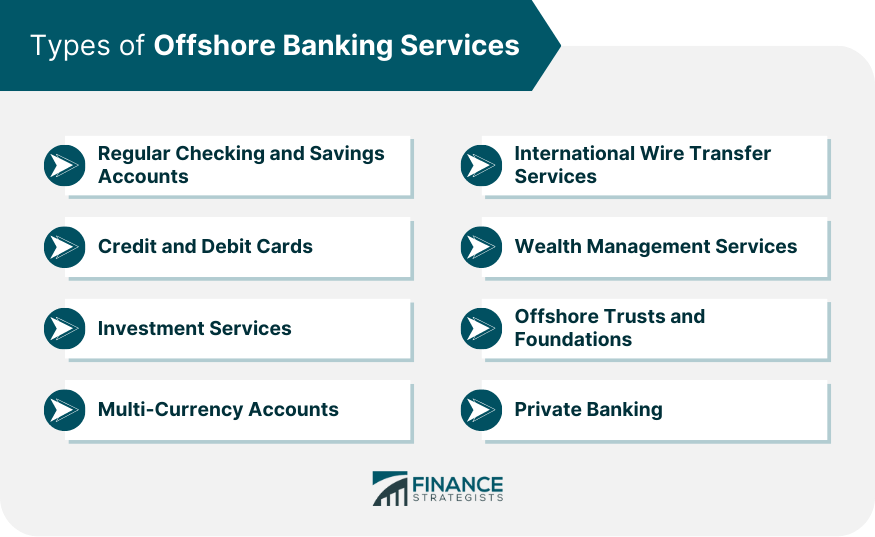Offshore Company Formation: Vital Actions for Global Development
Offshore Company Formation: Vital Actions for Global Development
Blog Article
Recognizing the Lawful Effects of Offshore Firm Formation

Lawful Framework for Offshore Companies
When establishing an offshore firm, recognizing the legal framework regulating its development and operation is vital for conformity and danger management. Offshore firms run under details laws and guidelines that differ from those of onshore entities. The legal framework for offshore companies generally consists of arrangements for business registration, investor demands, director responsibilities, and tax obligation responsibilities.
Business enrollment involves sending the necessary documentation to the appropriate regulative authorities in the selected territory. This procedure commonly needs in-depth information regarding the company's framework, investors, and designated activities. Additionally, offshore firms have to abide by details investor demands, such as maintaining a register of investors and maintaining this details approximately day.
Supervisors of offshore companies have fiduciary duties to act in the best passions of the business and its shareholders. By sticking to the lawful structure governing offshore companies, services can run with self-confidence while lessening legal risks.


Tax Effects and Regulations
Understanding the tax obligation ramifications and regulations is critical when taking into consideration the establishment and procedure of an overseas business. Offshore business are usually subject to desirable tax programs, using decreased or zero tax prices on foreign-earned income.
Tax laws for offshore companies differ substantially throughout jurisdictions, and it is essential to look for experienced suggestions to understand the details requirements and responsibilities. Failing to follow tax obligation regulations can cause serious repercussions, consisting of large penalties, reputational damages, and also lawsuit. Furthermore, offshore territories may have reporting commitments to reveal monetary details to relevant authorities. Comprehensive knowledge of tax laws and laws, as well as appropriate tax obligation planning, are important to guarantee the effective and compliant procedure of an offshore firm.
Compliance Demands and Coverage
Making certain compliance with regulative demands and preserving accurate coverage are vital facets of taking care of an overseas business effectively and transparently. Offshore firms must adhere to the legislations and laws of both the territory in which they are integrated and any type of other pertinent jurisdictions where they conduct service.
In addition to regulatory compliance, offshore companies are usually based on reporting requirements to ensure openness and protect against prohibited activities such as money laundering or tax obligation evasion. Reporting responsibilities might entail disclosing info regarding the business's possession structure, financial tasks, and beneficiaries. This details might need to be shown to regulative bodies, tax authorities, or other governmental agencies, relying on the Visit This Link territory.
Keeping complete and exact records is essential for showing conformity and reacting to any kind of questions or audits successfully. Offshore companies need to apply durable reporting devices and inner controls to make certain that they meet all legal demands and run with stability.
Asset Defense and Privacy Regulations
In the realm of offshore company development, a critical factor to consider is the interaction between possession protection approaches and privacy legislations. By structuring possessions within an overseas company, people can guard their wealth and expand their holdings across various legal structures. Inevitably, comprehending the complex relationship between possession protection methods and privacy legislations is vital when taking into consideration offshore company development.
Obstacles and threats to Take into consideration
When venturing into overseas business formation, sensible factor to consider of possible threats and difficulties is essential for educated decision-making and tactical preparation. Furthermore, political instability or changes in overseas territories can position a threat to the continuity of operations and the protection of assets held by the offshore company.
Challenges might likewise develop worrying the complexity of offshore business frameworks and the requirement for expert lawful and financial recommendations to browse the intricate regulative structures of different jurisdictions (offshore company formation). Maintaining conformity with differing global legislations and laws, as well as helpful site prospective language barriers and social distinctions, can even more complicate the offshore firm formation process. It is crucial to be knowledgeable about these risks and difficulties before waging offshore firm formation to alleviate possible risks and make sure a smooth and legitimately sound establishment
Verdict
In final thought, overseas company development includes navigating intricate legal structures, tax obligation implications, compliance requirements, and privacy regulations. Recognizing these facets is critical for alleviating dangers and challenges related to offshore service operations. It is very important for organizations and people thinking about overseas company development to look for professional guidance to make certain compliance with policies and to shield their possessions successfully.
The legal structure for offshore companies generally consists of provisions for business registration, investor needs, supervisor duties, and tax commitments.
Directors of overseas firms have fiduciary tasks to act in the ideal rate of interests of the business and its shareholders. By adhering to the legal framework controling offshore firms, businesses can operate with confidence while decreasing lawful risks.
In addition, political instability or changes in offshore jurisdictions can position a risk to the website link connection of procedures and the protection of possessions held by the overseas business. - offshore company formation
In final thought, offshore company formation involves browsing complex lawful structures, tax implications, compliance demands, and personal privacy legislations.
Report this page